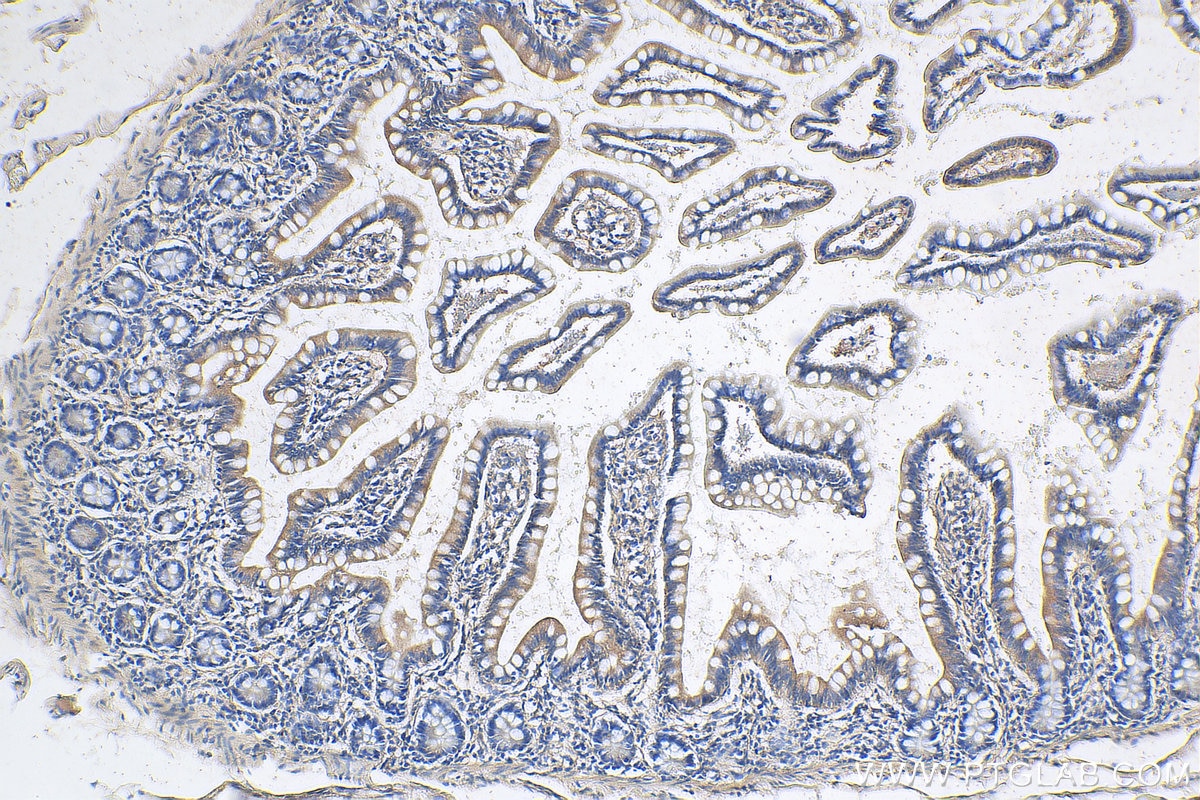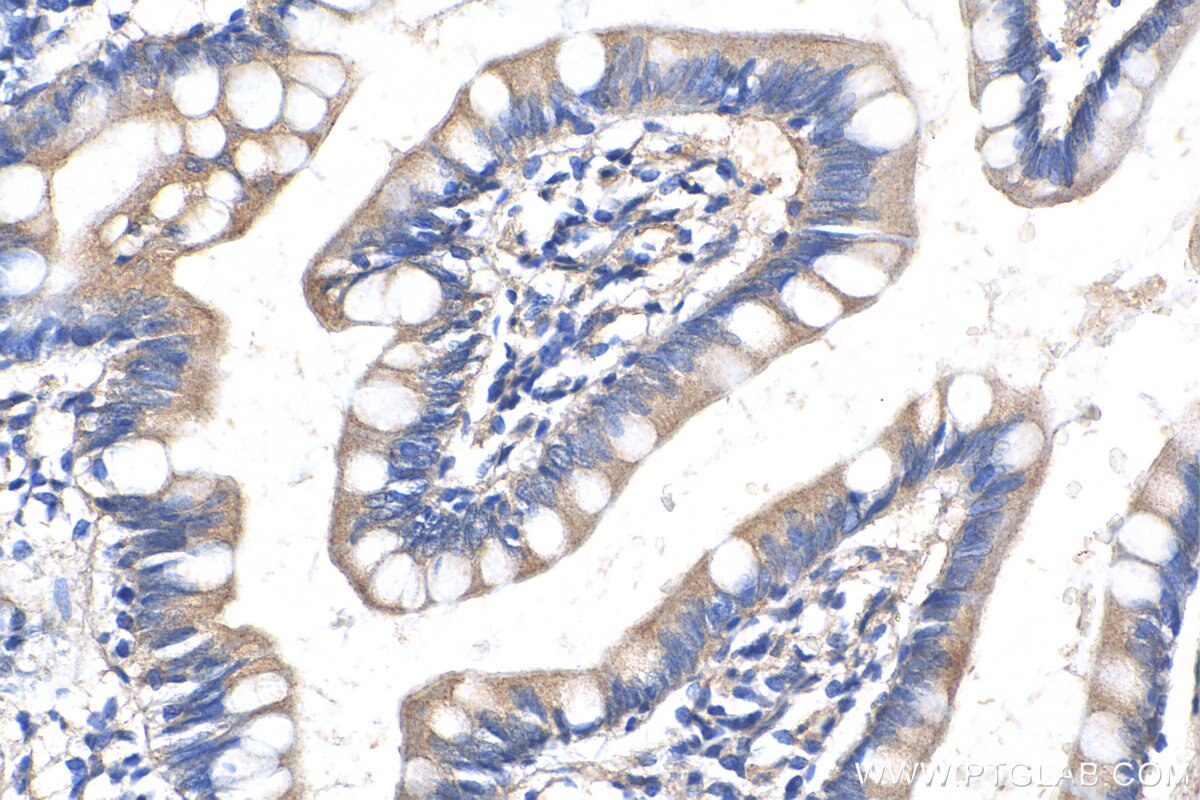RETNLB Polyclonal antibody
RETNLB Polyclonal Antibody for IHC, ELISA
Host / Isotype
Rabbit / IgG
Reactivity
human
Applications
IHC, ELISA
Conjugate
Unconjugated
Cat no : 18232-1-AP
Synonyms
Validation Data Gallery
Tested Applications
| Positive IHC detected in | human small intestine tissue Note: suggested antigen retrieval with TE buffer pH 9.0; (*) Alternatively, antigen retrieval may be performed with citrate buffer pH 6.0 |
Recommended dilution
| Application | Dilution |
|---|---|
| Immunohistochemistry (IHC) | IHC : 1:50-1:500 |
| It is recommended that this reagent should be titrated in each testing system to obtain optimal results. | |
| Sample-dependent, Check data in validation data gallery. | |
Product Information
18232-1-AP targets RETNLB in IHC, ELISA applications and shows reactivity with human samples.
| Tested Reactivity | human |
| Host / Isotype | Rabbit / IgG |
| Class | Polyclonal |
| Type | Antibody |
| Immunogen | RETNLB fusion protein Ag12912 |
| Full Name | resistin like beta |
| Calculated Molecular Weight | 111 aa, 12 kDa |
| GenBank Accession Number | BC069318 |
| Gene Symbol | RETNLB |
| Gene ID (NCBI) | 84666 |
| Conjugate | Unconjugated |
| Form | Liquid |
| Purification Method | Antigen affinity purification |
| Storage Buffer | PBS with 0.02% sodium azide and 50% glycerol pH 7.3. |
| Storage Conditions | Store at -20°C. Stable for one year after shipment. Aliquoting is unnecessary for -20oC storage. 20ul sizes contain 0.1% BSA. |
Background Information
RETNLB is an intestinal goblet cell-specific protein and is notably upregulated during intestinal inflammation. RETNLB also plays a role in several research areas, such as inflammatory disease, cancer, and metabolic function. In tumors, previous reports have suggested that positive expression of RETNLB was detected in most tissues from gastric carcinoma and colon cancer patients, RETNLB was also found involvement in oral squamous cell carcinoma [PMID: 34158059 19706296 27001185 15983036].
Protocols
| Product Specific Protocols | |
|---|---|
| IHC protocol for RETNLB antibody 18232-1-AP | Download protocol |
| Standard Protocols | |
|---|---|
| Click here to view our Standard Protocols |



